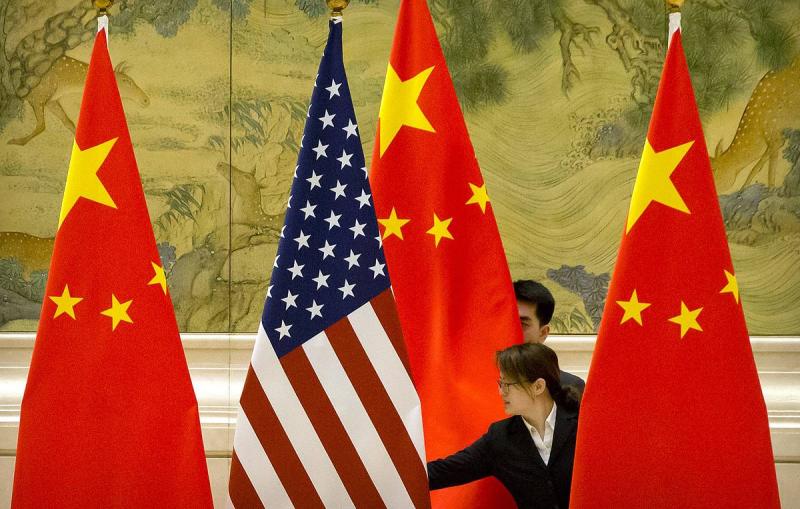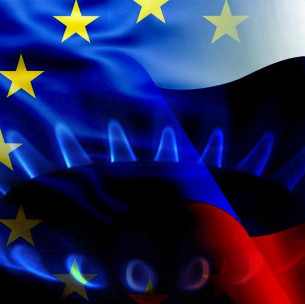
© TASS
Presidents Xi Jinping and Joe Biden have had a two-hour telephone conversation initiated by the American side. It has been their fifth direct communication in a year and a half of Biden’s presidency and the first one since March this year. According to Washington, Biden and Xi discussed Taiwan, Ukraine, and a number of other bilateral and global issues. Yet the White House has failed to disclose the details on the acutest one – the situation involving Taiwan.
However, certain details have naturally leaked out. In particular, Biden is known to have told the Chinese leader that Washington is opposed to any unilateral steps along the track of altering the status quo or undermining stability and peace around the Taiwan Strait. In turn, the Chinese side reported that the US President assured his Chinese counterpart that Washington lacks support of the Taiwanese separatism. As reported by China Central Television, Xi Jinping told Biden that Beijing vigorously protested against any external interference in the Taiwan issue: "Public opinion shall not be violated. If you play with fire, you get burned. I hope the US side can see this clearly."
Despite Xi Jinping's relentlessness regarding Taiwan, both sides deemed the telephone conversation as sincere and agreed to maintain contact. Just a reminder: the conversation between leaders of China and the United States took place amid reports on a possible visit to Taiwan by House Speaker Nancy Pelosi. These plans caused an aversive response from Beijing – in the past few days alone, the Chinese authorities have issued six various-level warnings to the Americans, promising to take "decisive and tough action" unless Pelosi drops her plans.
And on Saturday, July 30, Mrs. Speaker set off for her Asian tour, comprising visits to Japan, South Korea, Malaysia and Singapore. The same day, the US Air Force special aircraft with Pelosi onboard landed in Hawaii. Notably, when starting her Indo-Pacific tour, the House Speaker did not say a word about visiting Taiwan, referring to security requirements. This may indicate that she has heeded to White House persuasions and gave up on visiting the "island of discord".
In the United States, certain people consider Pelosi's cancelled visit to Taiwan a mistake and a sign of Washington’s self-surrender to Beijing. For instance, professor in the Government department at Georgetown University Matthew Kroenig is sure the congresswoman should have to abstain from announcing her plans publicly. "She should have simply come there, like it was with British Prime Minister Boris Johnson’s unexpected visit to Kiev," Kroenig suggested.
However, Pelosi's cancelled visit to Taiwan does not imply that the issue is taken off the table in US-Chinese relations, with tensions running high as regards the disputed island. Pundits say what they see is "actually teetering on the brink of an armed conflict." At the same time, they don’t consider the probability of a "hot" war. So far, the parties are trying to detect the "red zones". Beijing is seeking to expand its military presence and demonstrate to the United States the inadmissibility of any form of interference in its Taiwan policy. In turn, the United States hopes to provoke the People's Liberation Army (PLA) of China into starting a blockade or other military action aimed to expose China as an aggressor.
Officially declaring that it recognizes the integrity of China and Taiwan’s status quo, Washington virtually regards the island as an independent state. This allows the United States create a hotbed of tension around Taipei, which Beijing cannot but respond to. The ultimate goal of such a provocative policy is to divert the Chinese resources and slow down its upward advance.
Admittedly, Nancy Pelosi's might-have-been trip will add to accusations against the White House of indulging China, which will hit both the unpopular president with his approval rating below 40% and the entire ruling Democratic Party. It is for a reason that the opposition Republicans encouraged Pelosi to hang on to her visit plans. This is vital for them ahead of the upcoming midterm congressional elections in November, where they do have chances to grab the lead in both the Senate and the House of Representatives.
We emphasize that Beijing also has its own political ends and outs. October this year will witness the XX Congress of the Communist Party, during which the country’s current President is expected to be nominated for his third unprecedented term at the helm. Prior to such an important event Xi Jinping cannot afford to appear soft on the United States, especially on the sorest subject of Taiwan.
Amid the set of problems that have accumulated between the world’s two largest economies politically located on different sides of the trench, few people expected at least the slightest breakthrough or detente from the two leaders’ recent talks. Most likely, both prepared well in advance to once again outline mutual claims to each other. And that's exactly how it happened, at the end of the day. At least as regards Taiwan everyone has predictably agreed to differ.
Still, experts say China and the United States do have mutual concerns brought about their highly interconnected economies. Both are interested in staying pragmatic for as long as possible, albeit gradually drifting apart: the Chinese are engaged in their own import phaseout and innovation, and the Americans seek to depend less on China, while keeping the process highly organized and the global economy ˗ integral.
Most crucially, the sides have a strong interest in averting a war. With status quo vital for both, the very fact of maintaining communication channels between their leaders to discuss the most challenging issues (even without follow-up actions) reflects good progress with an eye to ways of avoiding dangerous crises. The latest telephone conversation between Xi Jinping and Joe Biden has made it perfectly clear.









